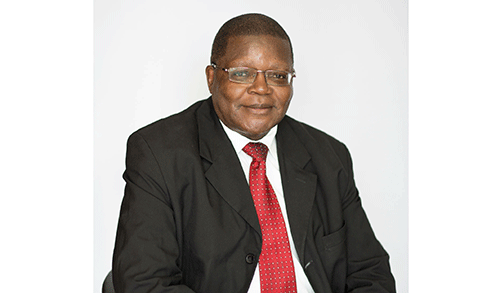The higher education landscape in Namibia is poised for greater heights and transformation for the better taking into account the high quality of research papers that were presented by researchers at the second conference of the Association of Private Higher Education Institutions in Namibia (APHEIN) held at the International University of Management last week.
The integration of indigenous knowledge in science education and technology took centre stage at the conference which befitting them was “fostering innovation for transformative sustainable development”.
Conference participants expressed satisfaction about how practical methodologies incorporate indigenous knowledge in science, technology, mathematics, chemistry and contemporary medicine. The two-day conference demonstrated the role of higher education institutions in promoting local sustainability and development.
The role new technologies have transformed pedagogy, starting from the time of the deadly Covid-19 pandemic, was also emphasised. The successes and challenges of using new technologies were interrogated and recommendations for future use were clearly brought out.
The benefits of translanguaging versus the traditional monolingual method of teaching learners at the early childhood development level and pre-service teachers were examined in a convincing manner.
I feel that all higher education institutions offering teacher education qualifications should make use of the valuable information on translanguaging at the International University of Management to empower their ECD lecturers and student teachers at their institutions.
The challenges multilingualism brings in the implementation of translanguaging were interrogated. There is a need to have in place a clear language policy that guides practice. Tanzania was hailed as a country that successfully utilises the Swahili language in all spheres of life, including education, thereby avoiding translanguaging.
The reclamation of cultural heritage though a bottom-up decolonisation of the science curriculum in tertiary institutions provides practical initiatives that will bear favourable results if well implemented. There is no doubt that promoting literacy both at home and school will go a long way in enhancing learners’ success in their education.
To demonstrate that IK is ubiquitous, it was interesting to realise that IK plays a critical role in political rhetoric for sustainable development and exploring rhetorical mechanisms in preserving cultural practices, rhetoric being the art of persuasive communication. It was also intriguing to learn how the school leadership can positively and negatively influence the performance of learners at the school.
I was impressed by the huge number of young researchers presented at this conference. It is a clear testimony that there will be continuity in academia when some academics retire. It reminds me of how I started my academic journey, researching and publishing when I was a temporary teaching assistant at the University of Zimbabwe in the 1990s.
I urge young researchers to keep up this practice; the academic rewards are great in future. Young academics should publish the findings of their research in reputable academic journals to build a strong academic
background.
It was symbolic that The International University of Management hosted the annual conference. Other private higher education institutions which were part of the conference included Headstart Montessouri Teacher Training College, Triumphant College, Sunshine Private College and River Higher Institute of Technology.
*Professor Jairos Kangira is a professor of English at the University of Namibia. He can be reached at kjairos@gmail.com



